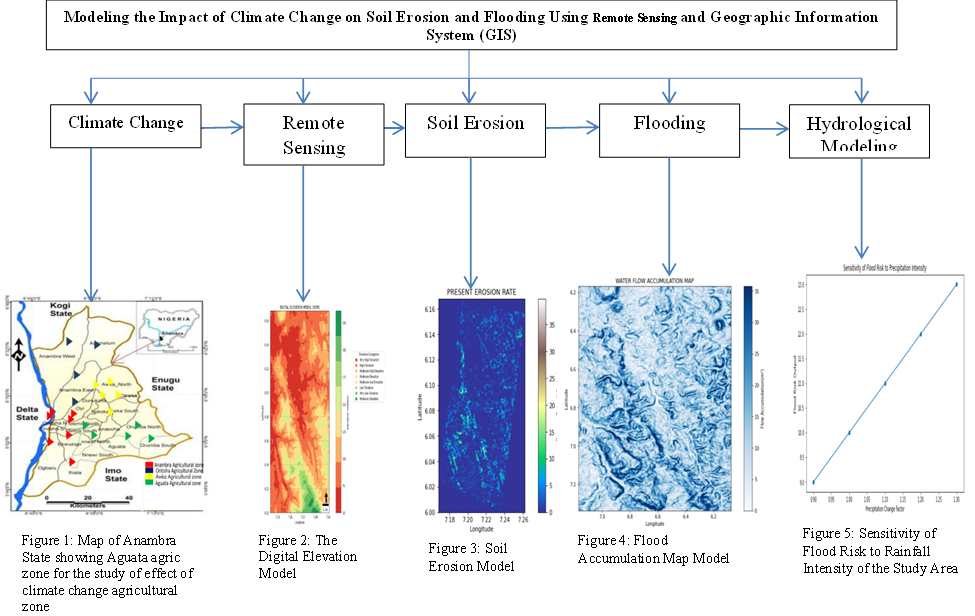Modeling the Impact of Climate Change on Soil Erosion and Flooding Using Remote Sensing and Geographic Information System (GIS)
Keywords:
Climate Change, Soil Erosion, Flooding, Remote Sensing, Hydrological ModelingAbstract
Climate change significantly impacts soil erosion and flooding in agricultural zones, intensifying environmental degradation. This study models and predicts these effects in the Aguata Agricultural Zone of Anambra State, Nigeria, using Geographic Information System (GIS) and remote sensing techniques. The Revised Universal Soil Loss Equation (RUSLE) and Watershed Erosion Prediction Project (WEPP) were used to develop susceptibility maps. Factors of the rainfall erosivity (R-factor), soil erodibility (K-factor), slope length and steepness (LS-factor), vegetation cover (C-factor), and conservation practices (P-factor) were analyzed. The study reveals a mean soil erosion rate of 0.79 tons per hectare per year, while the soil erosion next ten years’ prediction model indicates an increase to 0.82 tons per hectare per year. Likewise, the flood model recorded a total flow accumulation of 2,823,864.50 m², an average flow accumulation of 13.81 m², a current mean flood risk of 10.98 mm, a total flood risk of 2,244,474.11 mm, respectively. However, the flood prediction model reveals a rise to 22.12 mm mean flood risk and 4,523,622.06 mm total flood risk over the next decade due to increased rainfall. Both studies underscore the critical need for effective mitigation strategies, improved drainage systems, and climate adaptation policies to combat soil erosion and flooding. Implementing sustainable conservation measures will be essential in minimizing climate change's adverse effects on agriculture in the region.


